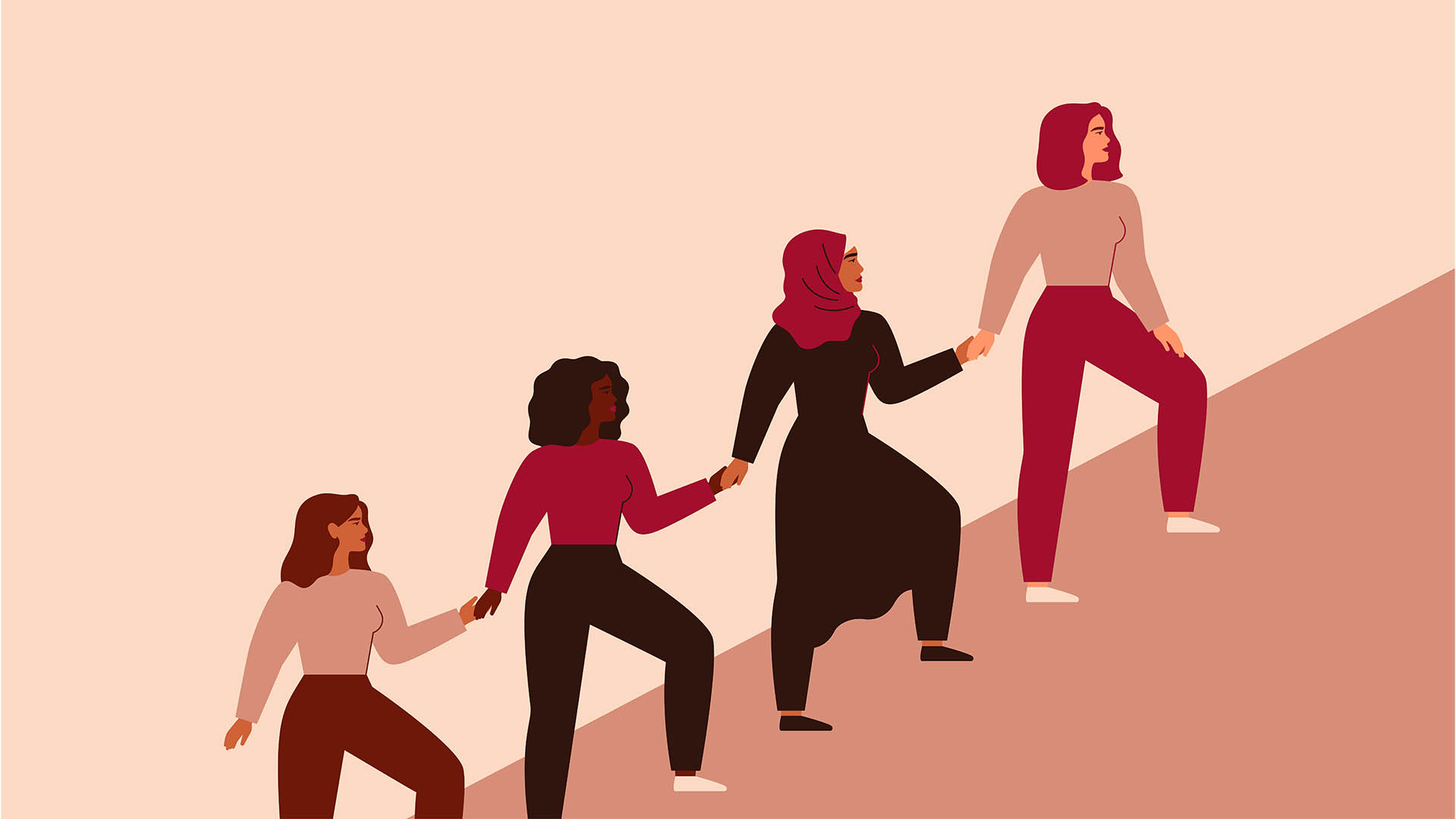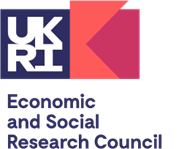
Projects
Projects

Rapid Identification of Indecent Images
Rapid Identification of Indecent Images of Children (IIOC) and Victim Identification in Digital Investigations

Stalking in Kirklees
Ten Years On: Stalking in Kirklees, Policing and Support for Victims

Reimagining Victims' Reparation Global Network
Reimagining Victims’ Reparation Global Network (RVRGN) aims to create a worldwide network of scholars, practitioners, activists, and civil society organisations working on novel and innovative mechanisms to deliver reparations to victims of serious human rights violations.

Rapid Identification of Indecent Images of Children (IIOC) and Victim Identification in Digital Investigations
Research Team and stakeholders
Dr Simon Parkinson is leading the project ‘Rapid Identification of Indecent Images of Children and Victim Identification in Digital Investigations’.
Other members of SSI involved in the project are; Dr Nadia Wager (HHS), Professor Rachel Armitage (HHS), Professor Jason Roach (HHS); Staff from the Centre for Cyber Security; Dr Saad Khan (SCE) and Dr Abdul Jabbar (HBS) are also part of the research team. This project is supported by the University of Huddersfield and Kursch Consult Ltd.
A Research Fellow is being appointed to work on the project.
Other organisations who will be supporting the project include; West Yorkshire, Derbyshire and West Midlands police forces; technology companies providing current technology solutions (Kursch); the third sector Nation Working Group for Sexually Exploited Children; and Young People and National Crime Agency.
Timescale
The project commenced in January 2022 and will be completed by January 2024.
Research context
In the UK and globally, police forces and law enforcement agencies (LEAs) are facing huge demand to view, process and analyse digital evidence. The continuous increase of computer, mobile and internet device use has created a massive growth in digital policing requirements. Arrests for Indecent Images of Children (IIOC) have risen by a factor of 25 over the previous decade, resulting in the demand to investigate 850 per month in 2020/21. Yet investigative processes and resources have largely not changed. The pervasive use of computer-based technology means every individual has a digital footprint which, whether as offender or victim, is pertinent to almost all investigations. Investigators can be presented with massive amounts of data per case (can be over 60 terra bites).
Project Objectives
This project will develop knowledge and resources to reduce time taken by police investigators to identify victims. It will also support investigator welfare.
Some of the key objectives of the project are:
- To work with external stakeholders to create a replica technology stack at Huddersfield focussing on those related to time taken to identify IIOC images, victim identification, and investigator welfare.
- Applying automated planning and scheduling techniques to develop and measure impact from a new software architecture capable of not only reducing overall processing time but enabling an earlier identification of images.
- Improved use of IIOC images from multiple police forces to develop more capable automatic classification techniques, overcoming sharing challenges through utilising federated learning.
- Embedding victim identification techniques early in the process through using police archive data, as well as other data sources to perform open-source intelligence techniques.
This project demonstrates SSI’s emphasis on interdisciplinary collaboration and our objectives of supporting real world research which will have positive societal impacts.

Ten Years On: Stalking in Kirklees, Policing and Support for Victims
Research team, partners and funders
Dr Rosie Campbell OBE, Senior Research Fellow, Secure Societies Institute, is the Principal Investigator on the project “Ten Years On: Stalking in Kirklees policing and support for victims”, She will be working with Co-investigator Professor Jason Roach, with input from Dr Kate Wood. Also Megan Bennett, Evaluations and Research officer from West Yorkshire Violence Reduction Unit will be seconded on a part time basis to work on the project. The project will be informed by the lived experiences of stalking survivors and victims and a range of consultation and inclusion activities are designed into the project.
The project was developed with a range of partners who will continue to be involved throughout the project, these are West Yorkshire Police, West Yorkshire Violence Reduction Unit (West Yorkshire Combined Mayoral Authority), Safer Kirklees and Pennine Domestic Abuse Partnership.
The research is being funded by the Economic and Social Research Council’s as part of their program ‘Partner with the police to tackle violence against women’.

The project commenced in early September 2022 and will be completed by the end of September 2023.
Research Background
Specific stalking offences were introduced into law in England and Wales over ten years ago in 2012, there has been a large increase in reports of stalking across West Yorkshire in the last two years, including in the Kirklees district, but convictions for stalking offences are low. There is no recent research on stalking in West Yorkshire nor has there been any specialist support provision for victims. The project will bring the issue of stalking from the margins to the centre in policy and practice addressing violence against women and girls in Kirklees.
Project Objectives
This project is an action research project focused on the Kirklees district which will strengthen multi-agency partnership work on stalking. We want to bring stalking from margins to centre in VAWG policy and practice in West Yorkshire, to help improve, policing approaches to stalking and enhance support for survivors/victims.
Other key objectives of the project are to:
- Establish a new stalking research, prevention and practice hub linked to the Secure Societies Institute.
- Review police data on stalking and investigative decision making in stalking cases.
- Identify current support for victims of stalking in Kirklees and review best practice for stalking victims/survivors nationally.
- Consult women who are survivors of stalking about their experiences of support and their views on improving support.
- Co-design a model for a stalking support provision with survivors of stalking their advocates, domestic and sexual abuse services, women's and girls services and other organisations.
The project will establish a clearer picture of stalking in Kirklees including how West Yorkshire Police are currently policing stalking and gaps in support for survivors, so they can get the protection and support they need, as early as possible to ensure their safety and reduce trauma.
Practice and academic learning from the project will be shared across West Yorkshire and beyond.
To get more information about the project and to get updates please visit the project's dedicated webpage.

Reimagining Victims' Reparation Global Network (RVRGN)
Background to the project:
Conventionally, efforts to reimagine the ways in which international organisations, multilateral bodies, nation[1]states, private actors, NGOs, grassroots movements, and civic associations can deliver reparations to victims of serious human rights violations have been focused on legalistic approaches, viewing victims as ‘objects’ of reparation rather than ‘subjects’ with their own agency, organisational capability, and initiatives. Some outcomes of this institutionalisation of reparation processes are a dominant legalism, privileging state-led prosecutions over victims-based reparations, and socio-cultural and economic rights being usually ignored by reparative mechanisms. Thus, traditionally, victims have had little influence or involvement in state-led reparative processes, participating as instruments of those processes rather than on their own terms. It is argued that rather than being driven by victims, reparation is a consequence of global neoliberal governance, driven by complicated international bureaucracy and developing systems that themselves create many of the needs that victims articulate.
Aims of the project
In this context, the project Reimagining Victims’ Reparation Global Network (RVRGN) aims to create a worldwide network of scholars, practitioners, activists, and civil society organisations working on novel and innovative mechanisms to deliver reparations to victims of serious human rights violations. The main purpose is to strengthen communication, collaboration, processes of knowledge exchange, and the creation of research initiatives between a world-leading group of interdisciplinary actors. Furthermore, this project proposes a paradigm change. Our objective is to shift the perspective on reparations by reimagining some fundamental principles of justice inherent to the traditional notion of reparation and by privileging sociocultural perspectives. It focuses on victims as active participants with their own agency and organisational skills, examining novel victims’ and grassroots initiatives to explore how notions of dignity, empathy, compassion, and solidarity have been explored and implemented in order to bring novel forms of victims’ reparation. The core of our methodology is an open dialogue between scholars, practitioners, activists, and civil society
Project leaders
Dr Camilo Tamayo Gomez. Member Secure Societies Institute (SSI) and Applied Criminology and Policing Centre (ACPC) | School of Human & Health Sciences. c.a.tamayogomez@hud.ac.uk
Dr Matthew Snell. Member Secure Societies Institute (SSI), the Centre for Sustainability, Responsibility, Governance and Ethics, and the Centre for Climate Resilient Societies | School of Business, Education and Law. M.J.Snell@hud.ac.uk
International project partners
The University of Sydney (Australia), Utrecht University (The Netherlands), The University of York (UK) and The University of Liverpool (UK).
International workshop
As part of the project, an international workshop “Reimagining Victims Reparation: building new perspectives on empathy, dignity, and justice for victims of serious human rights violation in the Global South” will take place 2-3 May 2024 at Utrecht University, to learn more go to the workshop website at https://reimaginingvictimsreparation.com
This project was funded by the Secure Societies International Research Collaboration and Production Fund (IRCPF)